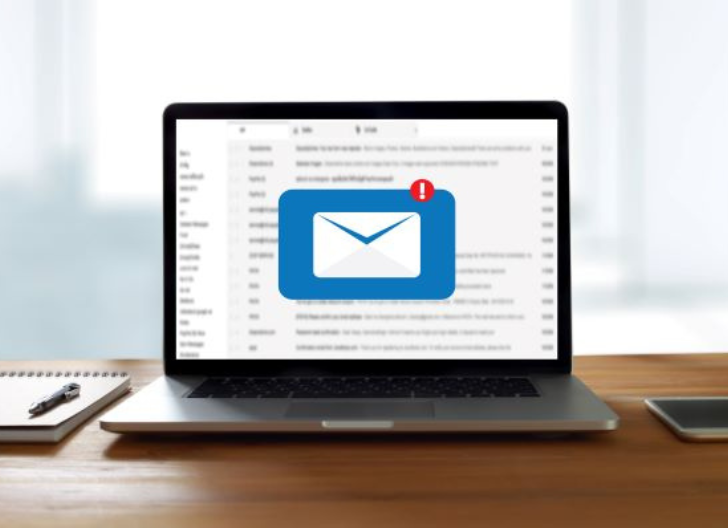5 Email Mistakes Every Attorney Needs to Stop Making
The NBI Team

Many attorneys use email as their primary means of communication because it’s efficient, convenient, and provides an electronic paper trail. However, attorney use of email raises numerous liability, malpractice, and professional ethics concerns. Attorneys must be extremely cautious in all aspects of their use of electronic communications. They should also be careful not to become complacent when drafting emails or clicking “send.” Here are five common mistakes that every attorney needs to stop making.
1. Forwarding or Clicking “Reply All”
It’s critical for attorneys to limit their use of forwarding and “replying to all” on emails. These email features can be useful for busy attorneys, but it’s best to proceed with caution—especially when a long email chain is involved, with an extensive list of recipients. In these cases, it is all too easy to send an email to an unintended recipient accidentally.
Apart from causing embarrassment, inadvertently sending a communication to the wrong recipient can compromise confidential client information or reveal legal strategies. An email forwarded to the wrong recipient could also become the subject of a malpractice suit.
2. Sending Attachments
Attorneys regularly use their email accounts to send attachments to clients, opposing counsel, and colleagues. This method of providing documents can prove detrimental to a case — even if an email is deemed privileged communication, the document attached may be treated separately from the email and may not be subject to the same protections.
Security is another issue that can arise with sending attachments via email. It’s generally best practice for attorneys to use a secure portal to exchange documents containing confidential information like bank account numbers or social security numbers. HIPAA also has specific regulations concerning the transmission of health information via email, which will be discussed in the September 10, 2020 NBI course HIPAA Compliance for Attorneys: Cybersecurity, Emails, Texts and More.
3. Sending Emails Unprofessional in Tone or Content
No matter who an attorney is emailing, it’s critical to use a professional tone. Jokes to co-workers can always be taken out of context, and angry emails to clients or adversaries can come back in litigation. Before clicking “send,” it’s essential to review it for spelling and grammar errors as well as general content.
Professionalism in emails should also extend to the signature line, the font used, and even the email address. Attorneys should avoid sending emails from personal accounts or use anything other than their names in an email address.
4. Inadvertently Disclosing Client Confidences
The American Bar Association issued an opinion advising attorneys that they have a professional duty to take reasonable measures to safeguard client confidences. This practice extends to email communications. Depending on the circumstances, an attorney might be required to take additional precautions while emailing, such as using encryption. Nonetheless, attorneys must also advise their clients on the security risks associated with using electronic communications, electronic devices, and Wi-Fi networks.
Regardless of the sensitivity of the information being transmitted, an attorney should obtain permission from a client before sending communications through email. It is important to ensure that the client is the only individual with access to the account. Sometimes, it may be best to send a quick email to schedule a phone call. Providing too many case details in an email could result in divulging confidences or waiving privilege if an account is shared.
5. Failing to Communicate Effectively with Clients
One of the most important professional ethics rules that attorneys must adhere to concerns attorney–client communications. Whether by email, phone, or face-to-face communication, an attorney is expected to have “reasonable and effective communication” with their clients. The failure to communicate effectively is one of the most common malpractice risks.
“Reasonable and effective communication” generally means that attorneys should convey information in a manner that a client can understand. Sometimes, email may not be the best way to accomplish this. In some matters, it may be better to pick up the phone or schedule an in-person meeting. If an attorney explains court procedures or the merits of a case using legalese, email communications can get lost in translation. Similarly, if an attorney is not clear in an email about the steps a client should take, the client could make an error that affects the outcome of their case.
Another mistake that attorneys frequently make in client communications is the failure to communicate at all. While attorneys are usually juggling many cases at once, they still have an obligation to respond to clients' emails and concerns in a timely manner to provide the most effective representation.
Learn More about Attorney Emailing and Ethics
These are just a few of the common email mistakes made by attorneys. Since email is integral to every attorney’s workday, it is essential to ensure that attorneys are ethically compliant. More information about attorney email mistakes — and how to avoid making them — is covered in the NBI course Legal Ethics: Top Email Mistakes. Be sure to review the NBI course catalog to learn about attorney email issues and other professional ethics matters.
--
This blog post is for general informative purposes only and should not be construed as legal advice or a solicitation to provide legal services. You should consult with an attorney before you rely on this information. While we attempted to ensure accuracy, completeness and timeliness, we assume no responsibility for this post’s accuracy, completeness or timeliness.
